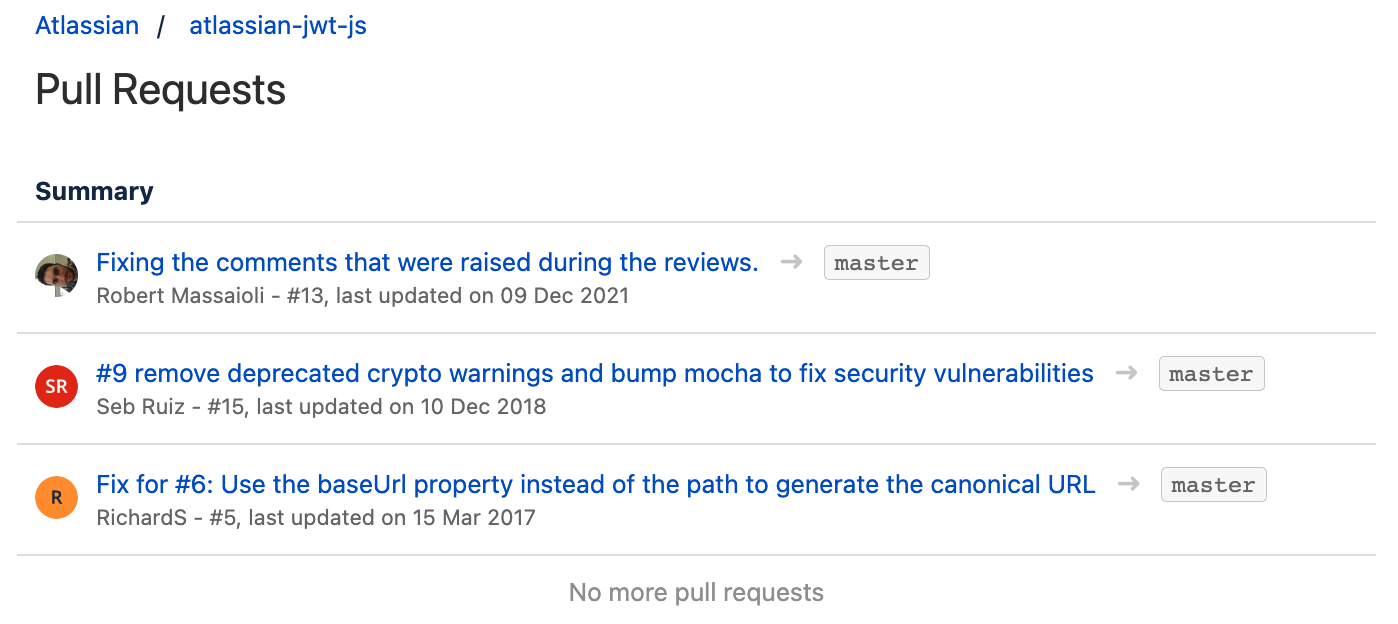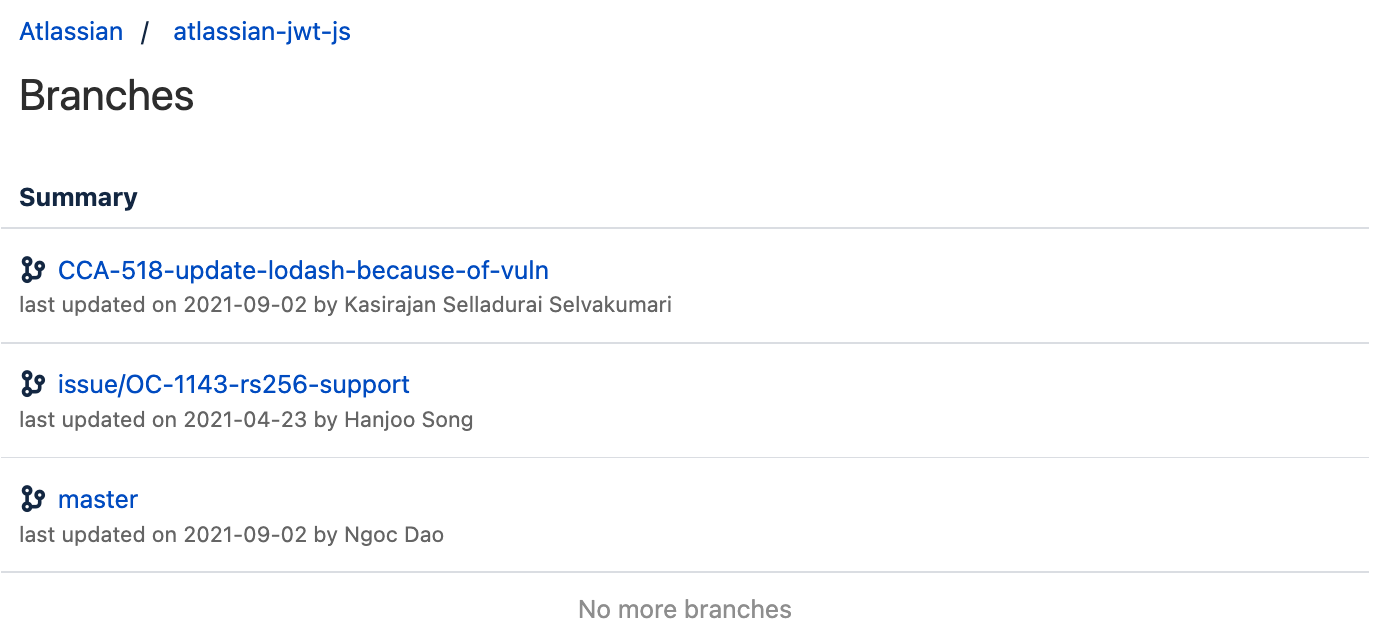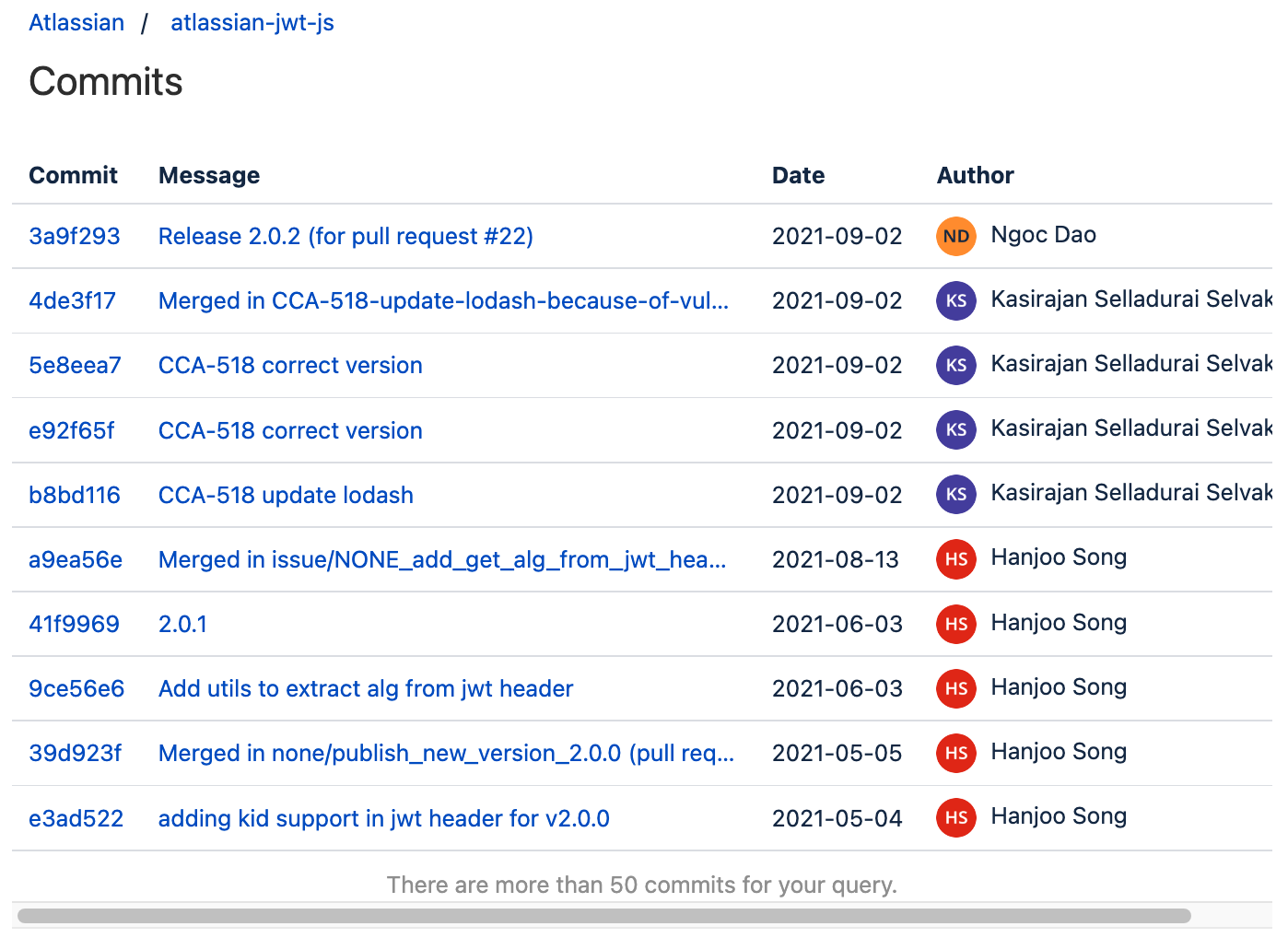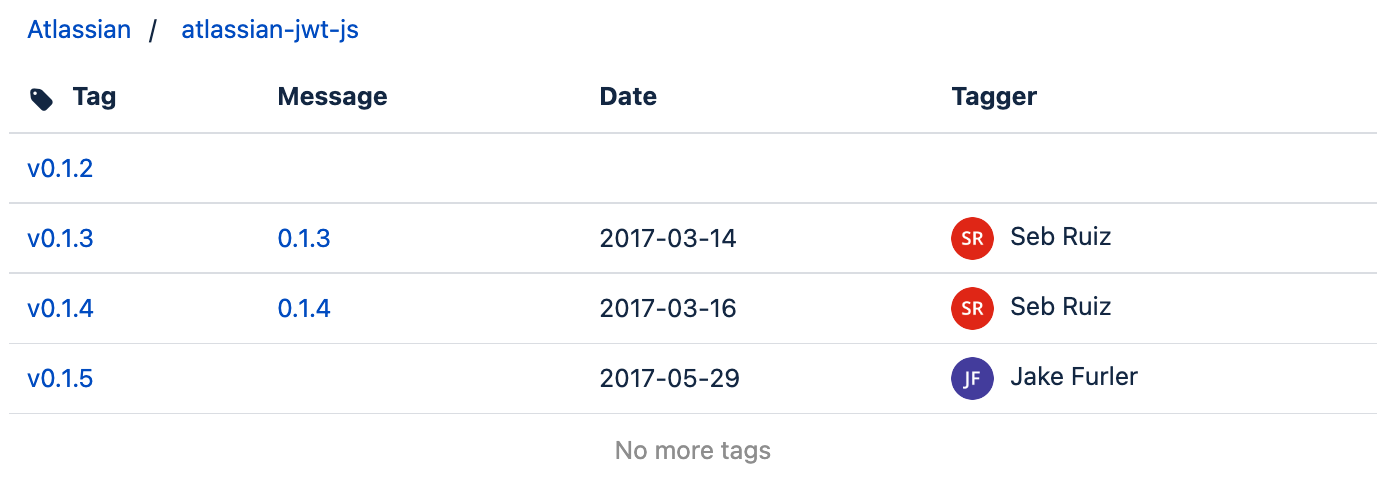atlassian-jwt

JWT (JSON Web Token) encoding & decoding
library for node.js. Built on jwt-simple, it adds support
for Atlassian's custom QSH (query string hash) claim.
For more information on using JWT tokens with Atlassian apps, please read:
Understanding JWT.
Install
npm install atlassian-jwt
Usage
Create a JWT token
import * as jwt from 'atlassian-jwt';
import moment from 'moment';
const now = moment().utc();
// Simple form of [request](https://npmjs.com/package/request) object
const req: jwt.Request = jwt.fromMethodAndUrl('GET', '/rest/resource/you/want');
const tokenData = {
"iss": 'issuer-val',
"iat": now.unix(), // The time the token is generated
"exp": now.add(3, 'minutes').unix(), // Token expiry time (recommend 3 minutes after issuing)
"qsh": jwt.createQueryStringHash(req) // [Query String Hash](https://developer.atlassian.com/cloud/jira/platform/understanding-jwt/#a-name-qsh-a-creating-a-query-string-hash)
};
const secret = 'xxx';
const token = jwt.encodeSymmetric(tokenData, secret);
console.log(token);
Decode a JWT token
const decoded = jwt.decodeSymmetric(token, secret);
console.log(decoded); //=> { foo: 'bar' }
// Decode without verifing the signature of the token.
// Don't do this unless that's your intention.
const decoded = jwt.decodeSymmetric(token, null, true);
console.log(decoded); //=> { foo: 'bar' }
Miscellaneous Utilities
jwt.createQueryStringHash(req, checkBodyForParams, baseUrl)
Creates a QSH using the algorithm defined by
the algorithm.jwt.createCanonicalRequest(req, checkBodyForParams, baseUrl)
Creates a canonical request which is used to calculate the QSH for the JWT token.
Prefer using #createQueryStringHash() directly.jwt.fromExpressRequest(expressRequest: ExpressRequest)
Converts an Express.js request into a Request object
that can be used with other methods in this library.jwt.fromMethodAndUrl(method, url)
Takes in a method and URL, both as plain strings,
and turns them into a Request object that can be used with other methods in this library.jwt.fromMethodAndPathAndBody(method, url, body)
Takes in a method, a URL, and some form params from a request body
and turns them into a Request object that can be used with other methods in this library.jwt.getKeyId(token)
Extracts kid from a jwt token.jwt.getAlgorithm(token)
Extracts alg from a jwt token.
Algorithms
By default the algorithm to encode is HS256.
The supported algorithms for encoding and decoding are HS256, HS384, HS512, and RS256.
See Critical vulnerabilities in JSON Web Token libraries.
If you use TypeScript:
// Encode using HS256 (default)
jwt.encodeSymmetric(payload, secret);
// Encode using HS512
jwt.encodeSymmetric(payload, secret, jwt.Algorithm.HS512);
// Encode using RS256, optinally accepts kid
jwt.encodeAsymmetric(payload, privateKey, jwt.Algorithm.RS256, { kid: 'f50f8562-f146-4b98-9bbb-7ce9545603b6' });
// Decode using RS256
jwt.decodeAsymmetric(token, publicKey, jwt.Algorithm.RS256);
If you use JavaScript:
// Encode using HS256 (default)
jwt.encodeSymmetric(payload, secret);
// Encode using HS512
jwt.encodeSymmetric(payload, secret, 'HS512');
// Encode using RS256, optinally accepts kid
jwt.encodeAsymmetric(payload, privateKey, 'RS256', { kid: 'f50f8562-f146-4b98-9bbb-7ce9545603b6' });
// Decode using RS256
jwt.decodeAsymmetric(token, publicKey, 'RS256');
Migrating from 0.1.x to 1.x.x
The 1.x.x release brings some breaking changes, probably the most important change is that our methods no longer
accept the Express.js request object as an argument but instead use our own intermediate Request object.
A convenience method called fromExpressRequest has been written to ease the transition. You can use it like so:
import * as jwt from 'atlassian-jwt';
import { Request as ExpressRequest } from 'express';
const eReq: ExpressRequest = ...;
const qsh = jwt.createQueryStringHash(jwt.fromExpressRequest(eReq));
Other methods, like fromMethodAndUrl and fromMethodAndPathAndBody were written to allow easier generation of
Request objects from other libraries.
Migrating from 1.x.x to 2.x.x
The 2.x.x release supports RS256 asymmetric algorithm which can be used with encodeAsymmetric and decodeAsymmetric functions.
encode and decode functions in 1.x.x are renamed to encodeSymmetric and decodeSymmetric which supports symmetric algorithms only.
Guides for developers
Publishing this library
Update version in package.json and lib/jwt.ts.
To publish this library:
This has been combined into a single command with:
npm run build-and-publish
Only the built TypeScript files will be published with this library.





